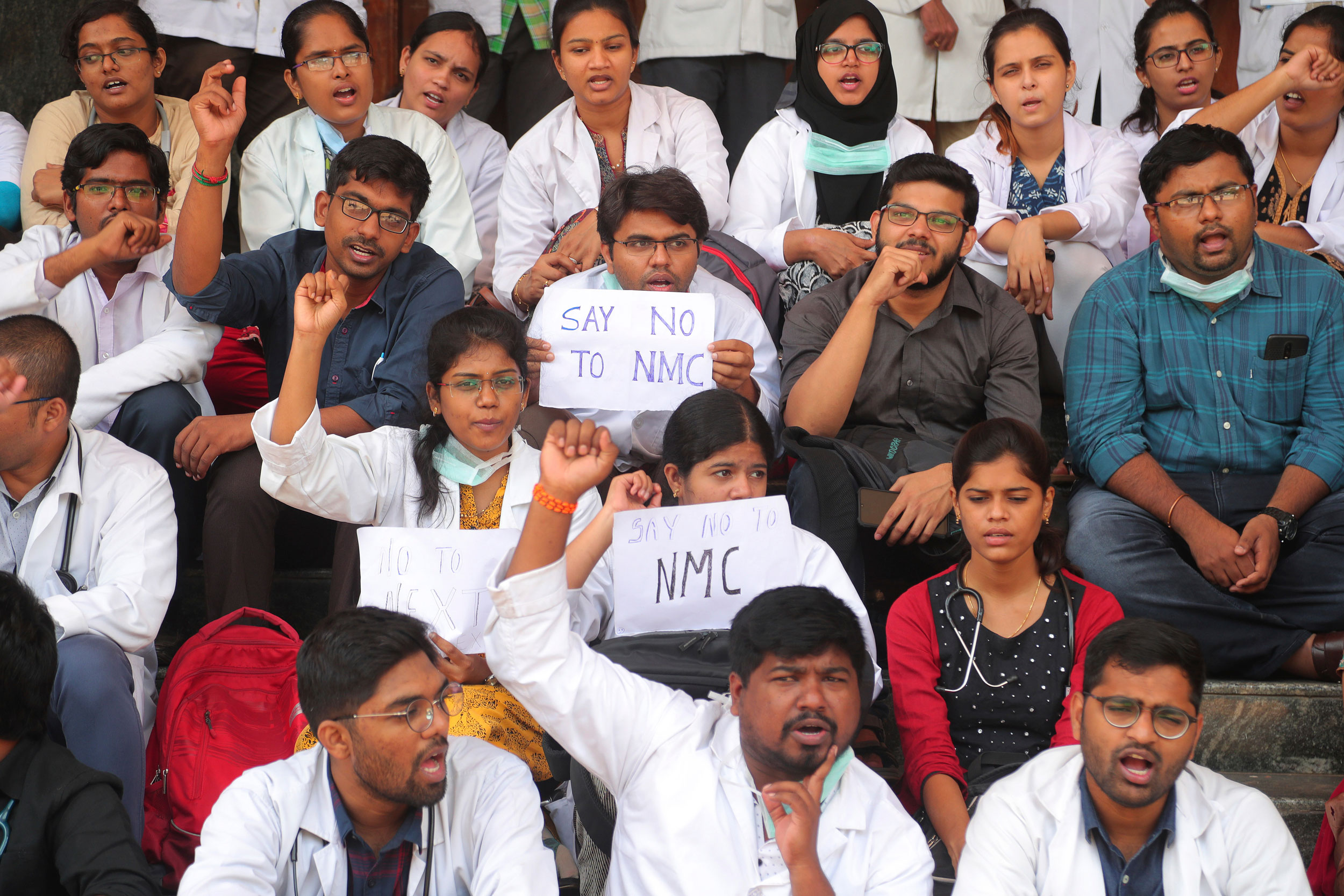Members of resident doctors’ associations from across India on Wednesday threatened to withdraw from essential and non-essential medical services “for an indefinite period” to intensify their protest against proposed legislative changes in medical education and healthcare practice.
The resident doctors — MBBS graduates who are pursuing or have completed postgraduate degrees — said they would intensify their opposition to the National Medical Commission (NMC) Bill 2019 that was passed by the Lok Sabha on Monday and is awaiting approval from the Rajya Sabha.
The NMC bill seeking to establish a new regulatory structure for medicine, contains, among its other provisions, proposals to regulate fees for up to 50 per cent seats in medical colleges and allow community health workers to deliver healthcare in rural areas.
The resident doctors said if the government tables the NMC bill in its current form in the Rajya Sabha, they would be “forced to resort to extreme measures which may hamper healthcare services nationwide”.
“We will withdraw from essential and non-essential services from hospitals for an indefinite period,” said the Federation of the Resident Doctors Association (FORDA) of India, United Resident and Doctors Association of India, and Resident Doctors Association at the AIIMS, New Delhi.
This is the first time in the medical campaign against the NMC bill that doctors are threatening to withdraw themselves from even essential services such as in-hospital and emergency care.
The associations’ office-bearers said their threat is intended to sensitise the public, policy-makers and politicians about concerns about the NMC bill that the medical community has raised for several weeks.
“We are desperate — we want people to understand the implications of this bill, how this bill could destroy medical education and healthcare,” said Sumedh Sandanshiv, an orthopaedic surgeon and FORDA president.
The threatened withdrawal of resident doctors from essential services would mean senior doctors, consultants and faculty members in government hospitals would need to manage all their admitted patients.
“Patients will not be sent home — but the workload on consultants and faculty members will increase tremendously,” said a FORDA member. Resident doctors play critical role in assessing and managing patients in hospitals under supervision of consultants and faculty.
An office-bearer of the Indian Medical Association (IMA), the country’s largest body of doctors, said the association is in solidarity with the resident doctors.
“There is anger across the medical community and the government has not done anything to address this yet,” said R.V. Asokan, the IMA’s general secretary. “We’ve been pushed against the wall. We’re fighting back. A government that wants to enact such a bill has no right to expect ethics from doctors.”
The IMA and resident doctors have claimed the bill’s provisions to allow community health workers to practice restricted elements of modern medicine would be tantamount to legalising quackery.
Doctors have also expressed concern that the bill would allow private medical colleges to charge whatever they wish for 50 per cent of their seats and make medical education less accessible to poor and middle-class students.
The IMA which had asked doctors to withdraw from non-essential services on Wednesday said thousands of doctors across multiple states had joined the strike.
“We’re doing this for aspiring future medical students and for the future of healthcare in the country — not for ourselves,” said Sandanshiv, who has already obtained a postgraduate medical degree and is practicing medicine.










